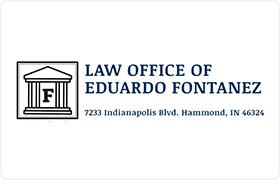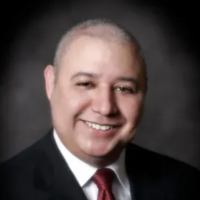Hammond RICO Act Lawyer, Indiana
Sponsored Law Firm
-
 x
x

Click For More Info:
-
Law Office of Eduardo Fontanez
7233 Indianapolis Blvd Hammond, IN 46324» view mapCriminal Defense, Divorce & Family Law Former Judge & Former Deputy Prosecutor
I hope we can resolve any issue you may need. Here at the Law Office of Eduardo Fontanez, are focused on providing high-quality service and customer satisfaction.
800-697-7560
Not enough matches for Hammond RICO Act lawyer.
Below are all Hammond Criminal lawyers.
Andrew Phillip Martin
✓ VERIFIEDAndrew Martin was born in Chicago, Illinois and lived in the Chicago suburbs his entire life. Mr. Martin lived in Schaumburg, Naperville and Plainfiel... (more)
Alejandro Dominguez
✓ VERIFIEDI am Alex Dominguez and I provide the highest quality, cost-efficient legal representation possible. I am an experienced trial lawyer representing cli... (more)
Andrew M. Yoder
FREE CONSULTATION
CONTACTStephen Charles Bower
Samuel George Vazanellis
FREE CONSULTATION
CONTACT Eduardo Fontanez Hammond, IN
Eduardo Fontanez Hammond, IN Practice AreasExpertise
Practice AreasExpertise


